Do boys need to know about the menstrual cycle? The short answer is yes. Let’s start with an explanation of the menstrual cycle.
A quick explanation of the menstrual cycle
The menstrual cycle is a natural process that happens to every born female. It is a process that prepares the female’s body for the possibility of pregnancy. However, when there is no pregnancy, the uterus gets signals from hormones to shed its lining, and that is what causes the bleeding for about three to seven days every month until menopause.
In addition, the menstrual cycle measures the first day of a girl’s or woman’s period until the first day of her next period. And it typically lasts for 28 days, but there is a range from 21 days to 35 days. Every girl or woman have different cycle experiences. For example, teenage girls may have cycles that last up to 45 days, while 20- to 30-year-old women may have cycles that last between 21 to 38 days.
The earliest a girl can see her period is 8 years of age and the oldest is 16 years of age. Moreover, menopause, which is the last period, happens around 51 to 52 years of age.
There are four main phases of the menstrual cycle, and they are:
- Menstruation: this is when the female’s uterus sheds it lining and flows out of the vagina.
- The follicular phase: this is when the body prepares an egg for ovulation, and the lining of the uterus thickens in preparation for a possible pregnancy.
- Ovulation: this is when the ovary releases a mature egg into the fallopian tube, where it can be fertilized by sperm.
- The luteal phase: this is when the body prepares for pregnancy by increasing the production of progesterone, which thickens the lining of the uterus and makes it more receptive to a fertilized egg.

What is the importance of discussing the menstruation?
Undoubtedly, there is a lingering taboo over the topic of menstruation. Periods are not ‘just something’ that happen to women, but it’s a whole internal body process that results in varying pains and problematic issues for many women.
Due to menstruation and the accompanying issues, most women are unable to function in their day to day lives. For example, Over 90% of girls are scared to go to school because they suffer from teasing and bullying when it’s their time of the month. Additionally, older women may need to book time off from work depending on their symptoms, which can result in unpleasant misogynistic comments.
“Over half the world menstruates at one time or another, but you’d never know it. Isn’t that strange?
— Margaret Cho
Because of lack of education, there is period poverty. This means that many girls are unable to provide themselves with the proper necessities when they are on their period. Consequently, they may drop out of school and experience lower self-esteem.
Therefore, discussing menstruation is important for a number of reasons including increasing girls’ confidence, lowering the chances of infections by providing proper sanitary products, and raising awareness among males.
So, why should boys know about menstruation?
Regardless of gender, it is important for everyone to learn about how bodies work, the female body system included.
In more ways than none, choosing to keep boys in the dark about knowing about the menstrual cycle makes them ignorant and passes on the message that menstruating is ‘dirty’. Not only to the boys, but also to the girls. Similarly, we indirectly tell our girls that bleeding each month is unnatural and ugly.
Naturally, by educating boys about menstruation, we can foster empathy and understanding towards girls and women, break the taboo surrounding menstruation, and create a safe and supportive environment.
1. Empathy and understanding towards girls and women
When we educate boys about the menstrual cycle, they gain a deeper understanding of what girls and women experience every month. Their knowing about periods promotes empathy, and you are helping boys develop respect and support for their female friends, partners, and family members during this natural process.
Of course, it is hard to really understand what women are going through because our bodies are different. However, it does not mean that boys should remain ignorant and see it as ‘it’s not my problem’ because their not going through it.

Education starts from home and proceeds from there. What you directly or indirectly tell boys about periods will garner whatever feelings towards women. To clarify, explaining to boys what women go through each month births understanding.
Also, boys who are aware of the menstrual cycle can offer emotional support and be more understanding of their partners’ mood fluctuations, physical discomfort, and overall well-being during this time.
2. Breaking the taboo surrounding menstruation
It’s not enough to just explain that periods are related to making babies. Boys need to learn in depth about what happens during a period and why it’s not something that’s ‘gross’ or ‘disgusting’.
Menstruation has historically been surrounded by stigmas and taboos. In fact, I have come across videos and comments from men who view menstruation as a sign of weakness in women. In other words, they believe this makes women inferior to men and that women should submit to men. How obnoxiously ignorant is that!
By educating boys about the menstrual cycle, we can break these barriers and foster a more inclusive and supportive society. Boys can help challenge harmful beliefs and promote an open dialogue, reducing the shame and embarrassment associated with periods.
We need way less-to-no poking fun and teasing girls about their periods.
“Education trumps ignorance every time.”
— Kristen Sears Cudd
3. Creating a safe and supportive environment
Misinformation starts early, and obviously, this is because of lack of knowledge.
When boys receive reliable information about periods and develop an understanding, they can connect with the notion that girls and women need support, rather than abrasive comments.
“…the lack of knowledge is the foundation for all life failures, destruction, depression, difficulties, hatred, bitterness, envy, etc.”
― Sunday Adelaja, The Mountain of Ignorance
Like I mentioned above, girls avoid school during their time of the month due to being shamed and teased. Boys, aware of the struggles females go through during menstruation, are creating an environment where girls can feel comfortable about menstruating.
The notion that periods — and dealing with everything that comes with it, including pregnancy — are only a women’s problem slowly ceases to exist when boys are knowledgeable about menstruation. This means they’ll be comfortable discussing about menstruation with their peers. It’ll mean buying sanitary pads for whomever may need it.
So, how can we educate boys about menstruation?

I would like to say it’s quite simple, but once we realize that it’s really not just a girl’s problem, discussing becomes easier. Here are four ways you can speak to boys about menstruation.
- Start the conversation: start early, or now (if you haven’t). And keep it simple, clear, and concise. Also, use a chart to show the anatomy of boys and girls.
- Provide accurate information: do your research if you are not sure of what to say and how to say it.
- Address common myths and misconceptions: these bring an end to whatever ideas they thought menstruation was about.
- Encourage open communication: they will have lots of questions, so try your best to answer them as best as you can. And do so in a positive way.
Takeaways
All things considered, it is important for boys to learn about the menstrual cycle for various reasons. Educating boys about menstruation can foster empathy and understanding towards girls and women, break the taboo surrounding menstruation, and create a safe and supportive environment.
We can educate boys about the menstrual cycle by starting the conversation early, giving accurate information, correcting common myths, and promoting open communication.
Ultimately, this will lead to a more inclusive and supportive society, where menstruation is no longer a taboo topic.
Remember, menstruating is not a ‘shameful’ or an ‘embarrassing’ thing, but a beautiful and natural process that makes women women.
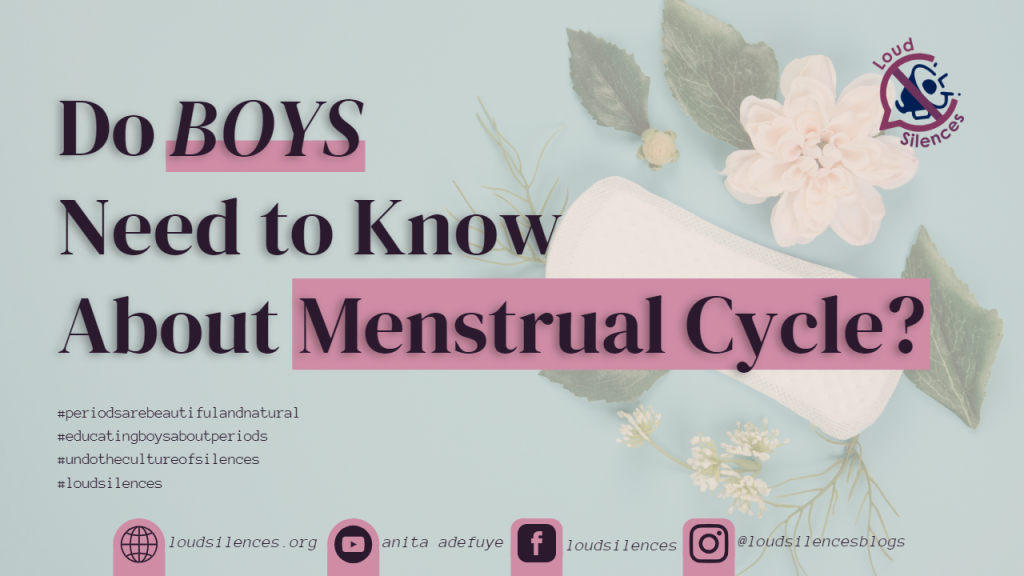
Her book, Reve-Healed – A true story of pain, healing, and hope, is available for purchase. Get yourself a copy today!
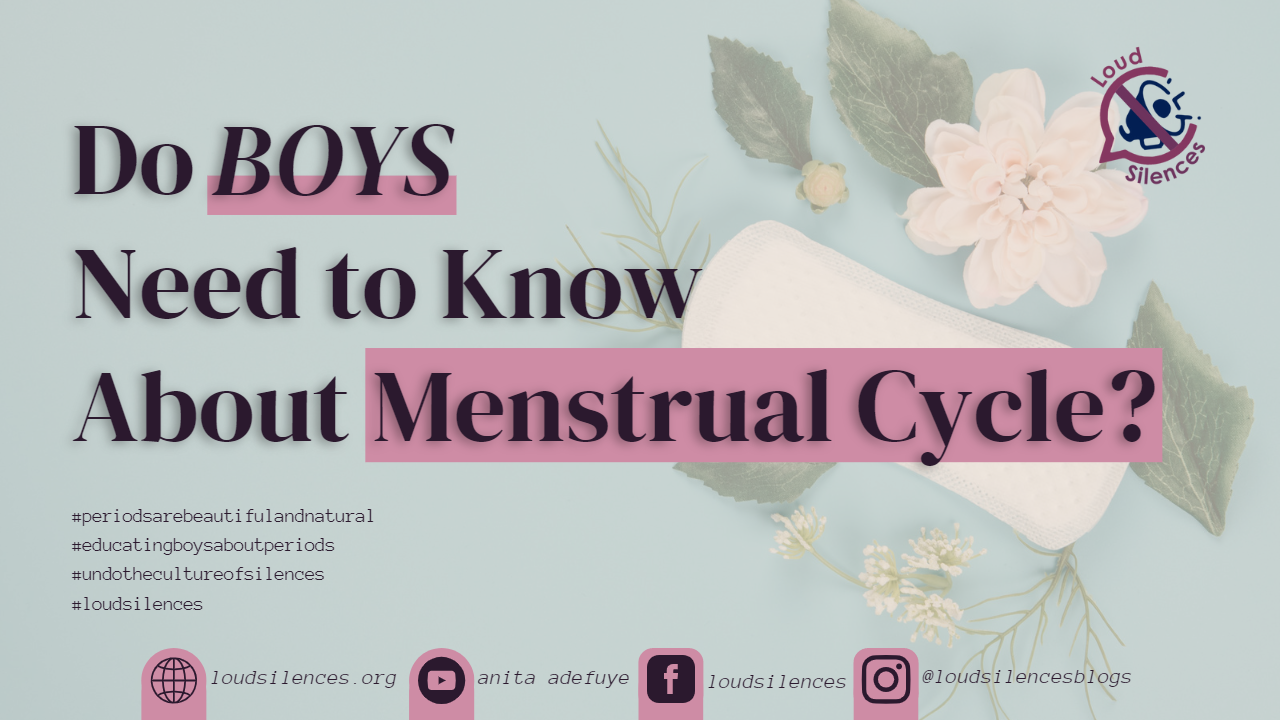
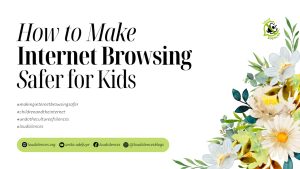
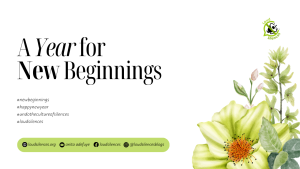
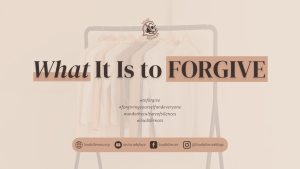
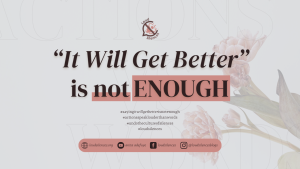

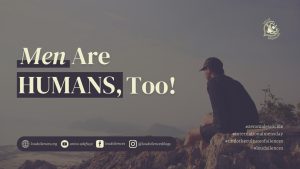
Leave a Reply